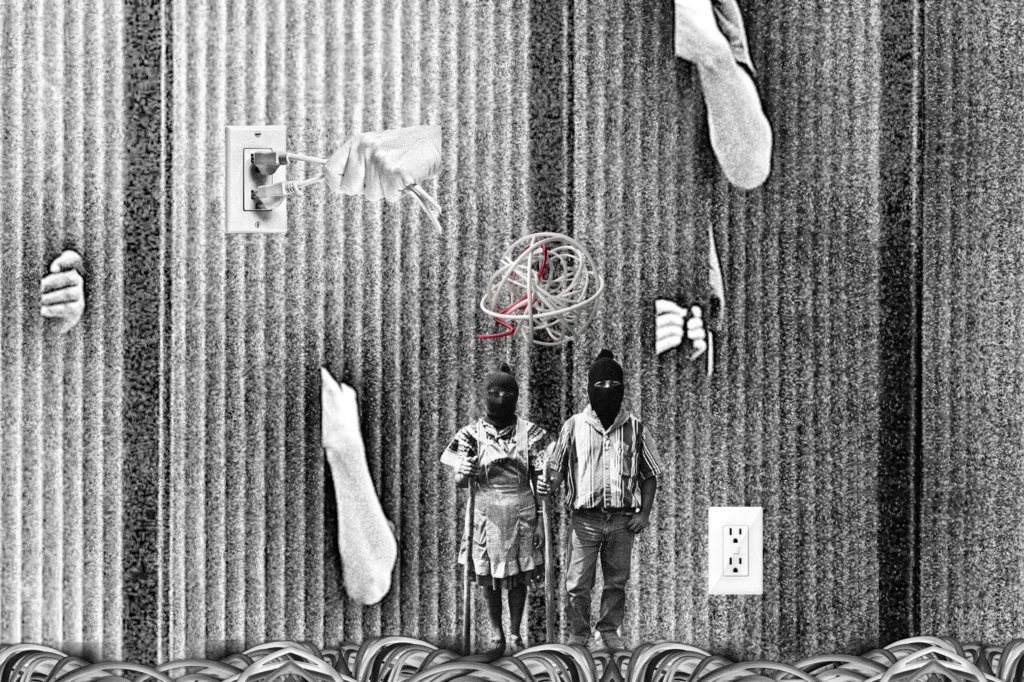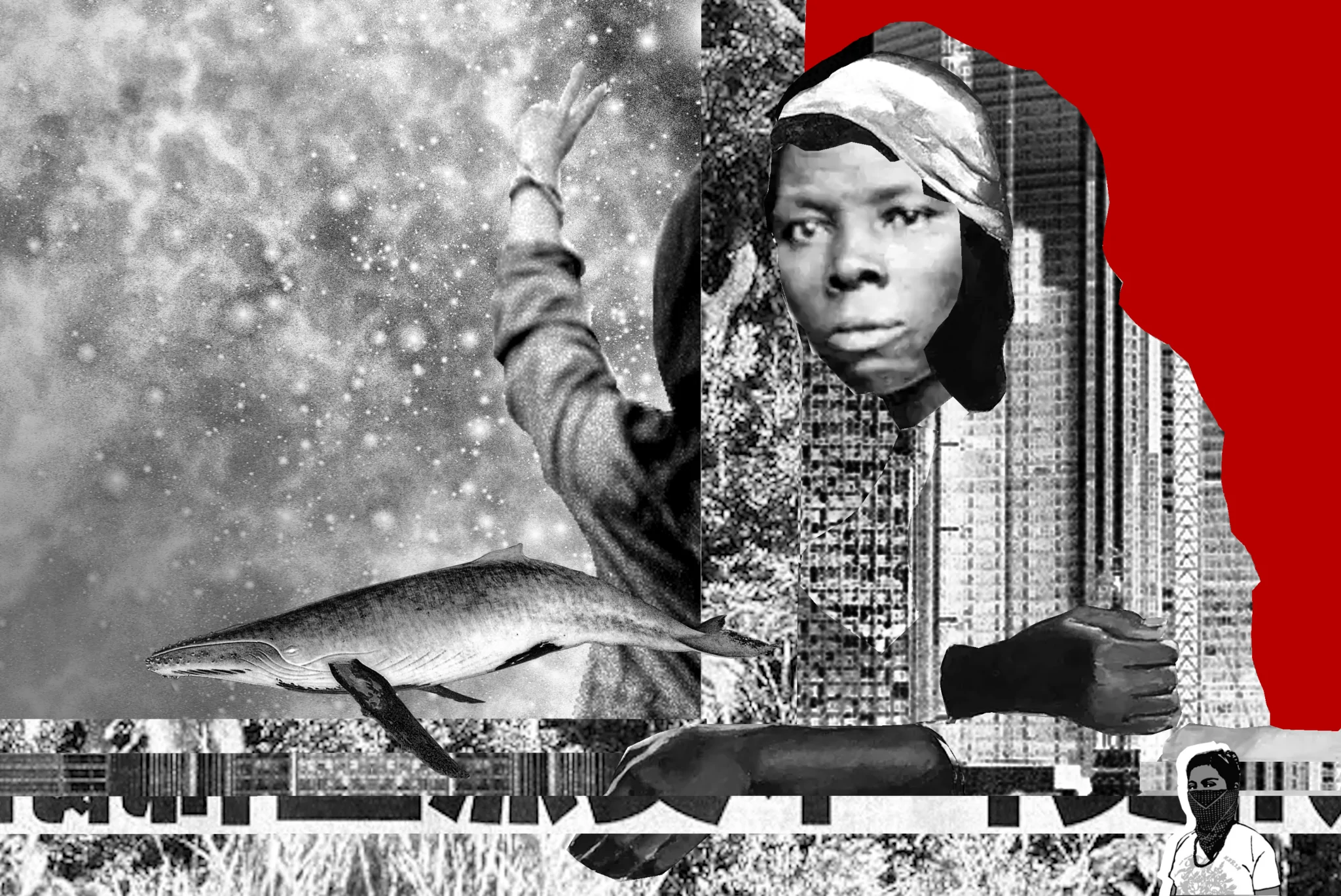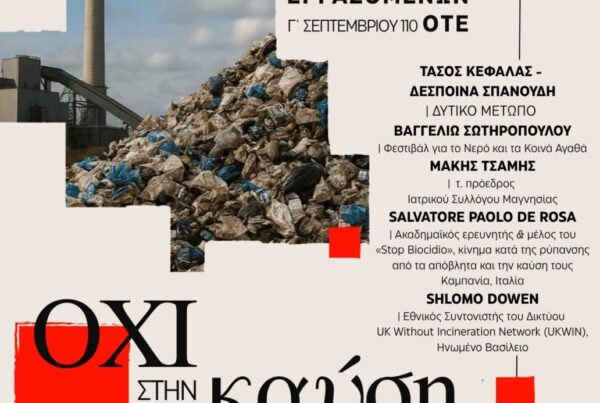By · Berliner Gazette
This Call for Papers for the new series of Berliner Gazette (BG) Pluriverse of Peace, is aimed at researchers, activists, and cultural workers engaged in emancipatory struggles against an environmental-war complex and for a world in which many worlds of peace fit.
Let us imagine planet Earth as a pluriverse of peace: a ‘multiplicity of worlds’ where different forms of life and knowledge coexist, where nation-states and corporations no longer compete with one another, where everyone works together to make life worth living for all. Ultimately, a world without war and environmental destruction. The majority of the world’s population currently dreams of such a world – or that, at least, is the conclusion that can be drawn from the Peoples’ Climate Vote 2024. But who is willing to do something about it? Who asks why we are trapped in a world of wars and environmental disasters? And who is drawing the necessary conclusions from the answers to this question? Who is working in the here and now on the desirable world of tomorrow?
To reject war and climate collapse but not to question the causes of these ‘evils’ seems a prevalent modus operandi. People are too distracted, too preoccupied with other concerns, to ask deeper questions. Seemingly smaller, more mundane and personal things, such as the increasingly unbearable cost of living, keep us busy and exhaust our capacity to develop solutions. Concerns, in short, that at first glance have nothing to do with war and climate collapse, and which are more immediate, more urgent, because the end of the month (when bills must be paid) is approaching faster than the end of the world. Yet asking about the systemic causes of all our worries can help in moving forward in terms of building a social force to change the status quo. The fact that the causes of the cost of living crisis are the same as those of war and climate collapse – certainly not migration, as populists suggest, but capitalism – could be a lever we could use to bridge the gap between those who are already active and the so-called ‘silent majority.’ True to the motto: ‘End of the world, end of the month, same struggle.’
The “Pluriverse of Peace” series of texts questions the causes of the predicament in which we find ourselves to better understand how we got into this dire situation, to design ways out of it, and, last but not least, to find out how emerging and existing struggles are connected by a ‘common enemy.’ The destructive forces of colonial-capitalist expansionism thus inevitably come into view – as do the movements against them.

Artwork: Colnate Group, 2025 (cc by nc)
We propose to focus on 1) the actions of civilians who are directly attacked or primarily affected. As they struggle to survive in the most deadly of circumstances, they engage in acts of resistance against a seemingly insurmountable force – not giving up on solidarity, democratic sociality, and mutual support, and even reinventing them as practices upon which any desirable future society should be based. We also consider of great importance 2) the actions of said civilians’ direct and indirect allies – those who help in the battle zones and organize in support with those under attack on the one hand, and those who work to change the status quo in the centers of power where wars and environmental disasters are instigated on the other. Since these groups do not yet constitute a critical mass of those who dream of a world in peace, the text series also asks about 3) the dormant anti-capitalist agency and political consciousness of all those who silently participate in and contribute to maintaining the prevailing system, all the while without assenting to its disastrous outcome. How can the gap between the silent contributors and those actively working for a better world be bridged? How can all current and future struggles be better connected? And how can these struggles be made widely readable and accessible as a starting point and source of inspiration for the prefigurative practice of utopia in the here and now?
Building on twenty-five years of critical engagement, including most recently the annual projects “Allied Grounds” (2023) and “Kin City” (2024), the BG’s 2025 text series will continue and expand BG’s work on struggles in and against the environmental crisis (as a crisis of capitalism) by linking it to war – and ultimately by focusing on emancipatory struggles against an environmental-war complex and for a pluriverse of peace. Read more about this in the extended introduction.
The Call for Papers is aimed at researchers, activists, and cultural workers, who, in theory or practice, are engaged in emancipatory struggles; BG seeks to forge links among them. Texts of 1,500 words or 10,000 characters will be published in BG under a Creative Commons license in English and German throughout the year. They can be submitted in either language to info (at) berlinergazette (dot) de by March 1, June 1, September 1, or November 15, 2025. Deadlines can be arranged on an individual basis.





